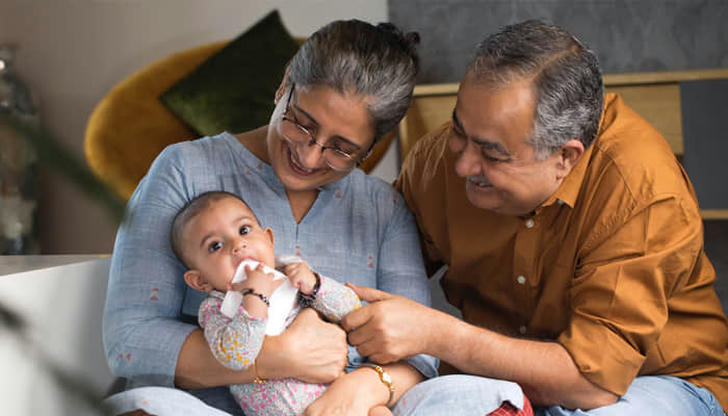How to Handle Parenting Disagreements Between Parents and Grandparents Without Causing Drama

You’ve probably experienced it: Grandma suggesting a completely different feeding method, or Dad thinking your baby monitor is unnecessary. Parenting advice from well-meaning grandparents can sometimes cause tension. They’ve raised kids, but times have changed, and your parenting style may differ.
Disagreements between parents and grandparents are natural, but they don’t have to cause drama. In this article, we’ll explore why these conflicts happen, how to handle them gracefully, and how to stay united as a family despite differing opinions.
Why Do Parents and Grandparents Disagree?

Generational Differences
Parenting has evolved over the years, and sometimes, what worked for your parents might not align with today’s approaches. Grandparents may not be familiar with the latest research or modern parenting methods. For example, if Grandma insists on letting your baby “cry it out” but you prefer a gentler sleep method, that can lead to conflict.
Over-Involvement
Grandparents love being involved, but sometimes, their desire to help can feel like they’re questioning your authority. They’ve done it before and want to pass on their wisdom, but that doesn’t always mean their approach fits your family’s needs.
It’s All About Love
Remember, both parents and grandparents care deeply about your child’s well-being. The disagreements come from a place of love, not from a desire to control. Understanding that can help you approach these moments with more patience and empathy.
How to Handle Parenting Disagreements (Without Losing Your Cool)

Stay Calm and Collected
It’s natural to feel defensive when someone questions your parenting choices, but try to remain calm. If your mom suggests using an old stroller or insists on a different feeding method, take a deep breath and smile. A calm response like, “I appreciate your suggestion, but I feel comfortable doing it this way,” can go a long way in avoiding tension.
Have an Open Conversation
Instead of shutting down their advice, try listening. Everyone’s perspective comes from a place of love. When Grandma suggests a different bedtime routine, respond with, “I see where you’re coming from, but this method works for us right now. Let’s give it a try.” This shows you value their input while staying true to your decisions.
Set Boundaries Respectfully
It’s important to set boundaries with kindness. Tell grandparents you appreciate their advice, but you’re following your own plan. For example, “I really appreciate your thoughts, but we’re going to stick with our own bedtime routine for now. Thanks for understanding.”
Staying United as Parents

Be on the Same Team
Before dealing with disagreements from grandparents, make sure you and your partner are aligned. If you’re not on the same page about something—like bedtime or screen time—resolve it together first. When parents present a united front, it helps maintain respect and authority in front of others.
For instance, if you’ve agreed on a rule, such as limiting screen time to certain hours, make sure both of you stick to it. If one partner deviates, it can undermine the rule.
Give Each Other Grace
Parenting isn’t easy, and disagreements between parents are bound to happen. It’s important to give each other space to make decisions while maintaining a supportive approach. If one of you wants to be stricter on curfews and the other wants to be more lenient, it’s okay to compromise. Negotiating doesn’t mean you’re not a team—it means you’re finding common ground.
Involving Grandparents in a Way That Works for You

Find Ways for Grandparents to Help Without Overstepping
Grandparents love being involved, and it’s important to let them, but it’s equally important to set healthy boundaries. If they want to bond with the kids, let them read stories or help with babysitting, but make it clear that you’ll be sticking to your parenting decisions. You could say, “I’d love for you to babysit for a couple of hours, but we’re sticking to the bedtime schedule for now.”
Share Your Reasoning
Grandparents often want the best for their grandkids, so sharing the reasoning behind your parenting decisions can help them understand. If you’re following a specific sleep method or feeding schedule, explain why. For example, “I’ve read that this new sleep method really works for babies, and I’d love to give it a try.” This helps them see your decisions as well-thought-out rather than rejecting their advice outright.
Show Appreciation
Even if you don’t agree with everything they say, make sure to appreciate the grandparents' involvement. It could be something as simple as thanking them for helping with a task, or acknowledging their experience and wisdom. This can keep the relationship warm and avoid unnecessary tension.
By handling disagreements with patience, open communication, and respect, you can keep the peace while navigating the tricky waters of parenting with your own parents. It’s all about finding a balance where everyone feels heard, valued, and appreciated.

